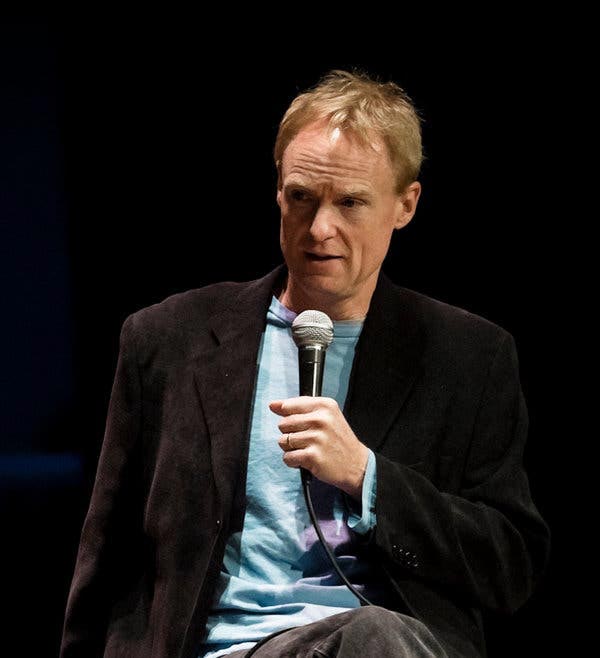John Schaefer

Composer/pianist Michael Harrison (called “an American maverick” by Philip Glass) is one of only a few musicians with equal training and immersion in both Western classical and Indian classical music. His music forges a new approach to composition through tunings and structures that extend the ancient concept of just intonation, a form of pure tuning constructed from musical intervals of perfect mathematical proportions.
His music has been performed at BAM’s Next Wave Festival, Carnegie Hall, Lincoln Center, the Muziekgebouw, Park Avenue Armory, the Metropolitan Museum of Art, MoMA, the Louvre, Centre Pompidou, MASS MoCA, Big Ears Festival, Spoleto Festival USA, the United Nations, Klavier Festival Ruhr, and the Sundance Film Festival.
A Guggenheim Fellow, Harrison has been commissioned by Grammy-winning vocal group Roomful of Teeth, Alarm Will Sound, Maya Beiser, Cello Octet Amsterdam, Del Sol String Quartet, and Contemporaneous.
His evening-length work Revelation, for piano in his own tuning system, was named one of the Best Classical Recordings of 2007 by The New York Times, Boston Globe, and TimeOut New York, and was called “probably the most brilliant and original extended composition for solo piano since the early works of Frederic Rzewski three decades ago” by Pulitzer Prize-winning critic Tim Page. Other acclaimed works include his Time Loops album with Maya Beiser (selected for NPR’s Top 10 Classical Albums of 2012) and Just Constellations for Roomful of Teeth, forthcoming from New Amsterdam (called “glacially beautiful” and “luminous” by Alex Ross in The New Yorker).
While still an undergraduate student, Harrison met composer La Monte Young. Soon Young brought him to New York as his protégé, to study composition, performance, and Indian classical music. Harrison was the exclusive tuner for Young’s custom Bösendorfer concert grand and became the only person other than the composer to perform Young’s 6-hour The Well-Tuned Piano.
Living in Young’s Tribeca loft during this formative decade, Harrison was immersed in the world of minimal music and art. Terry Riley became a close friend and mentor, within a broader circle that included John Cage, Philip Glass, Laurie Anderson, Walter de Maria, Marian Zazeela, and the founders of the Dia Art Foundation (the patrons of Harrison’s work with Young). Most importantly, he became a disciple of Young and Riley’s music guru Pandit Pran Nath, traveling to India with Pran Nath and Riley for periods of extensive study and practice.
Harrison creates dedicated tuning systems for many of his works. He also pioneered a structural approach to composition in which the proportions of harmonic relationships organically determine other musical elements such as pitch, duration, and dynamics. He seeks expressions of universality via the physics of sound – music that brings one into a state of concentrated listening as a meditative and even mind-altering experience.
His residencies include MacDowell, Yaddo, Camargo, McColl Center, Ucross, Djerassi, Millay, Bogliasco, La Napoule, I-Park, MASS MoCA, and the Visiting Artists program of the American Academy in Rome. In addition to the Guggenheim, his awards include a NYSCA/NYFA Fellowship, Aaron Copland Recording Grant, Classical Recording Foundation Award, IBLA Foundation Prize, American Composers Forum residency and performance in the Havana Contemporary Music Festival, and a New Music USA Grant.
Harrison received his Masters in Composition, studying with Reiko Fueting, at Manhattan School of Music. He invented the “harmonic piano,” a grand piano that plays 24 notes per octave, documented in the Grove Dictionary of Musical Instruments. His music has been recorded on Cantaloupe, New Amsterdam, Innova, New Albion, and New World Records.

